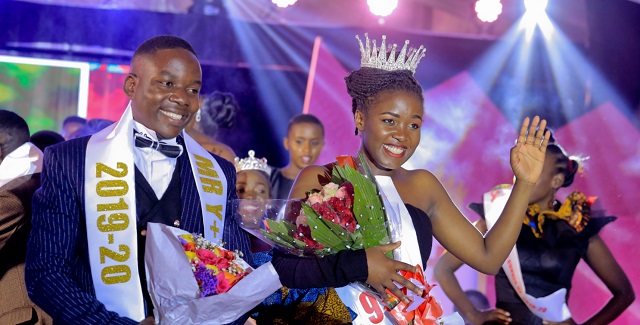
Participants in the Y+ pageant are groomed into anti-discrimination ambassadors and given life skills to tap into opportunities
Kampala, Uganda | IAN KATUSIIME | Robina Babirye is an articulate young lady who has garnered a large following on Facebook. She is not a television presenter or an aspiring politician. Babirye is a mentor at Uganda National Young People Living With HIV/AIDS (UNYPA), and one of the key personalities behind the annual Y+ (Young Positives) beauty pageant contest which gives a platform for youth aged between 16 and 24 to express themselves in various roles in society.
Participants in the pageant are young persons living with HIV. The end of the contest has a Miss Y+ and Mr Y+ who act as advocacy ambassadors for anti-HIV discrimination.
“The Y+ contest was initiated because of the high rate of stigma among children in schools,” Babirye says. “We felt there was a need to come up with something creative that makes them feel confident about themselves.”
Babirye is also a beneficiary of the beauty pageant as she was the Miss Y+ in 2015. The pageant started in 2014 and it has churned out a number of young men and women who have been trained in public speaking, farming, entrepreneurial and other life skills so as not to let the demon of stigma hinder them from getting ahead in life.
The Miss and Mr Y+ pageant came to light again as the world marked Zero Discrimination Day on March 1. The day calls for equal opportunity and dignity for all. It’s a day of promoting inclusion, compassion, and peace. Those suffering from diseases like HIV/AIDS bear the brunt of discrimination mostly.
UNAIDS states that girls and women across the world are most vulnerable to this discrimination as they are flatly denied opportunities. Yet they have something to contribute to their families and communities.
UNAIDS executive director Winnie Byanyima said, “AIDS can be beaten, but it will only be beaten if we take on the social and economic injustices that perpetuate it and spur more scientific innovations to address the real needs of women and girls and people living with and vulnerable to HIV.”
UNAIDS calls for action
On Zero Discrimination Day 2020, UNAIDS highlights the urgent need to take action against discriminatory laws. There is a concern from HIV/AIDS activists and other human rights groups that governments are not taking enough action to protect persons living with HIV/AIDS especially in passing laws.
The case in point, for instance, in Uganda is the HIV and AIDS Prevention and Control Act 2014 that engender discrimination.
It is this environment and culture of stigma that Babirye and the young and agile people at UNYPA are operating in, and what compelled them to start the Y+ beauty pageant.
In the course of the pageant, participants have events such as campfires where they share experiences and hear from peers and other more seasoned individuals on how they have taken on the scourge of discrimination.
At one time, the participants during one of the regional auditions were taken to a farm in Kiboga district to help them appreciate farming as a tool for survival. It’s a whole course on coping with the demands of life amidst dealing with the reality of being HIV positive.
“We give them tutorials on how to deal with people like the minister of health or appearing before the parliamentary committee on HIV/AIDS. Most times, these important people don’t have time for them. We train them on how to use that one hour productively,” Babirye says.
At the end of the contest, there are usually about six finalists in the Y+ contest and these become the ambassadors. The finalists are then brought together in a grand finale held in Kampala akin to Miss Uganda or other glitzy beauty contests.
In her year 2015, Babirye was the finalist from the central region. “When I went through, it was a blessing. I felt really honoured to have this opportunity.”
She was doing a lot of community engagement before the pageant. “When I merged as a winner, it was an opportunity for me to go higher, I do my advocacy now on a national and international level.” She says.
“I had a lot of stigma from home, school and elsewhere. Teachers would say people with HIV have a disability and I would really debate them because these are things that happen in schools.”
 The Independent Uganda: You get the Truth we Pay the Price
The Independent Uganda: You get the Truth we Pay the Price


 Anthony Natif notes from Court: Uganda Vs Molly Katanga and Others 13/August/2025
Anthony Natif notes from Court: Uganda Vs Molly Katanga and Others 13/August/2025
